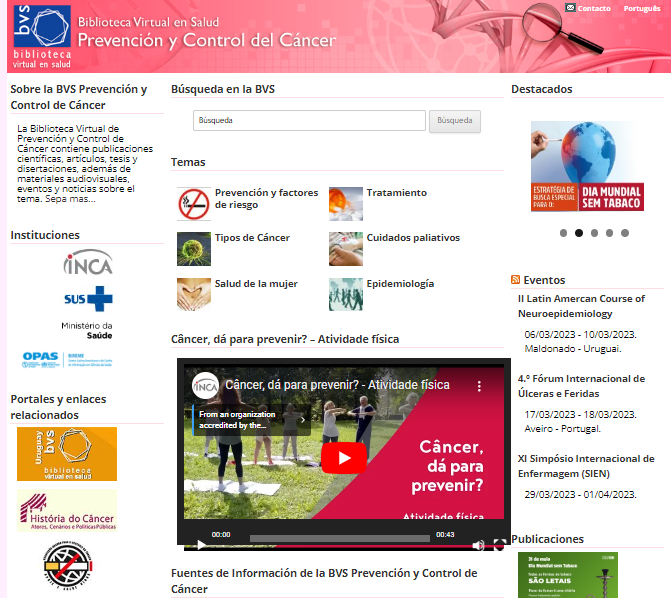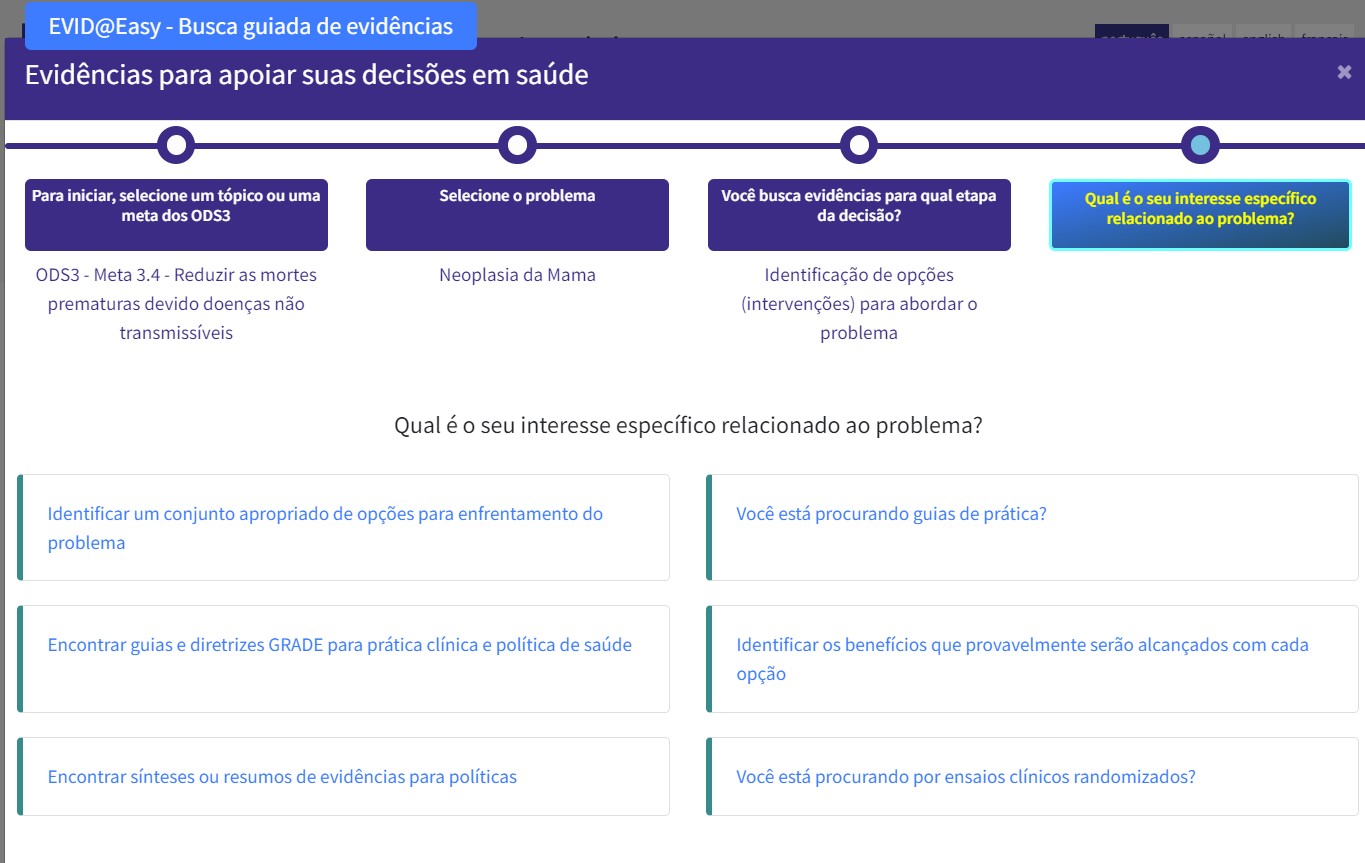World Cancer Day 2023, celebrated on February 4th, advocates “Close the care gaps” and the call to unite our voices and take action. Pan American Health Organization/World Health Organization (PAHO/WHO) joins this campaign to call everyone, collectively and individually, to commit to strengthen actions aimed to improve access to quality care, including screening, early detection, treatment, and palliative care.
BIREME Scientific Information Products and Services on Cancer
BIREME, in its mission to provide access to scientific and technical health information, makes available information on cancer in the Cancer Prevention and Control Virtual Health Library.
 This important source of information for researchers, health professionals and society in general, launched in 2012 and periodically updated, is the result of a technical cooperation project between the Office of the Pan American Health Organization in Brazil (PAHO Brazil), the Latin American and Caribbean Center on Health Sciences Information (BIREME) and the National Cancer Institute José Alencar Gomes da Silva (INCA). The Cancer VHL is the result of a technical cooperation model based on the decentralized production and operation of scientific and technical knowledge in cancer prevention and control.
This important source of information for researchers, health professionals and society in general, launched in 2012 and periodically updated, is the result of a technical cooperation project between the Office of the Pan American Health Organization in Brazil (PAHO Brazil), the Latin American and Caribbean Center on Health Sciences Information (BIREME) and the National Cancer Institute José Alencar Gomes da Silva (INCA). The Cancer VHL is the result of a technical cooperation model based on the decentralized production and operation of scientific and technical knowledge in cancer prevention and control.
In the context of Agenda 2030, considering the Sustainable Development Goal 3 – Target 3.4 – Reduce premature deaths from noncommunicable diseases, BIREME developed the guided search for evidence through the EVID@Easy service for more than 20 health topics related to neoplasms. EVID@Easy facilitates the ways to find the scientific evidence available in the VHL according to the phase of the decision-making process.
Cancer can be prevented and controlled by implementing evidence-based strategies for cancer prevention, screening and early detection, treatment, and palliative care. The most common modifiable risk factors for cancer, which are shared with many other noncommunicable diseases, such as tobacco use, low fruit and vegetable intake, harmful use of alcohol, and lack of physical activity. Some specific risk factors for cancer include chronic infections from human papilloma virus (HPV), for cervical cancer, hepatitis B and C, for liver cancer, and H. pylori, for stomach cancer.
One third to one half of cancer cases could be prevented by reducing the prevalence of known risk factors. Examples of actionable interventions are tobacco control and HPV vaccination. The most effective primary prevention of cancer is based on whole-of-government approaches, with legislation, regulation and fiscal policies combined with activities to change community and individual behavior. Public health messages and health promotion should present evidence on specific risk factors.
Cancer in the Americas
Cancer is the second most frequent cause of morbidity and mortality in the Americas, after cardiovascular disease, and an important basis of health inequalities.
In the Americas there are an estimated 4 million people were newly diagnosed and 1.4 million people died from the disease in 2020. Approximately, 57% of new cancer cases and 47% of cancer deaths occurred in people 69 years of age and younger, in the prime of their lives.
Globally, there were an estimated 20 million new cases of cancer and 10 million deaths from cancer. The cancer burden will increase by approximately 60% over the next two decades, further straining health systems, people, and communities. The predicted global burden will increase to about 30 million new cancer cases by 2040, with the greatest increases occurring in low- and middle-income countries.
In the Americas region the number of people expected to be diagnosed with cancer will increase by 57%, to approximately 6.23 million people are predicted to be diagnosed with cancer by 2040, if no further action is taken to prevent and control cancer.
PAHO’s strategy to prevent cancer in the Americas
PAHO works with countries to implement in the Region of the Americas the three global initiatives launched by the World Health Organization to address the burden of cancer globally: (1) Global Breast Cancer Initiative, (2) Global Strategy for the Elimination of HPV and Cervical Cancer, and (3) Global Childhood Cancer Initiative.
Links of interest
Pan American Health Organization. World Cancer Day 2023: Close the care gap. Available from: https://www.paho.org/en/campaigns/world-cancer-day-2023-close-care-gap
Pan American Health Organization. A Global Strategy for elimination of cervical cancer. Available from: https://www.paho.org/en/towards-healthier-generations-free-diseases/global-strategy-elimination-cervical-cancer
Pan American Health Organization. Childhood and Adolescence Cancer. Available from: https://www.paho.org/es/temas/cancer-ninez-adolescencia
Pan American Health Organization. Breast cancer. Available from: https://www.paho.org/en/topics/breast-cancer
Cancer Prevention and Control Virtual Health Library. https://controlecancer.bvs.br/ (in Portuguese and Spanish)
BMC Blog. World Cancer Day 2023: Understanding the patient perspective regarding the use of AI in prostate cancer.
